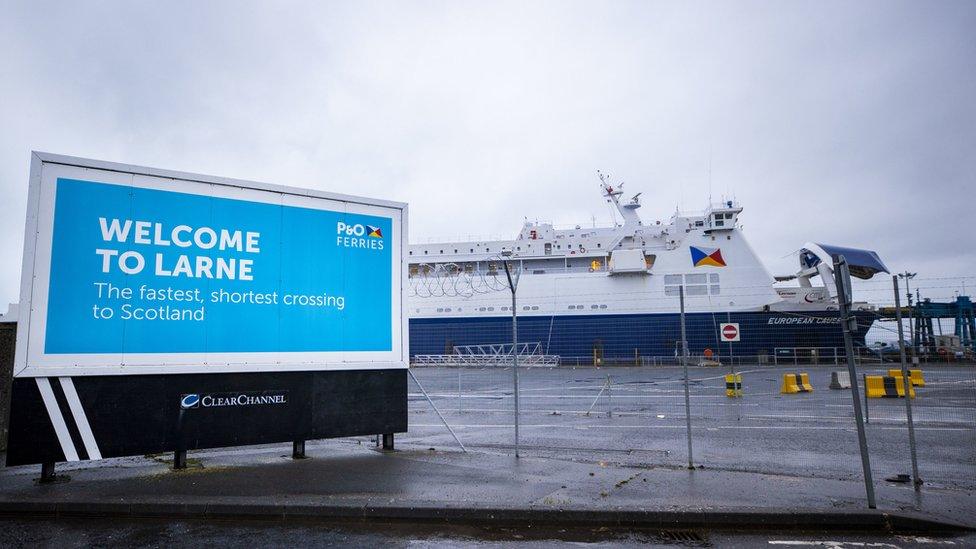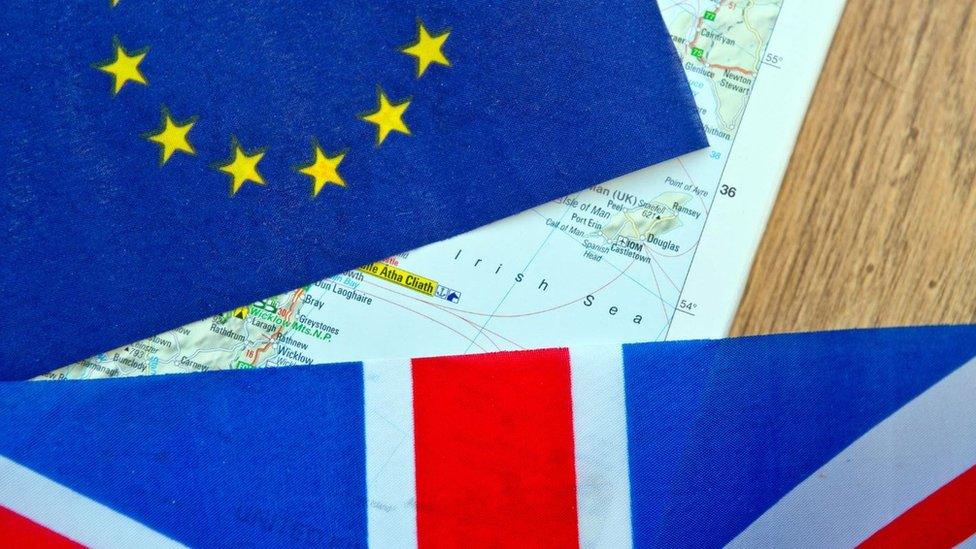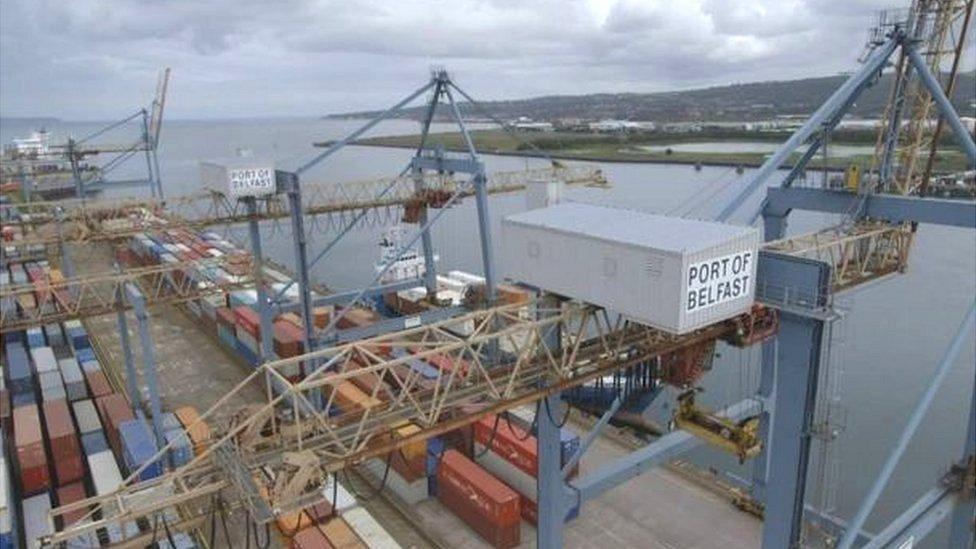Brexit: Work begins on Larne harbour border control post
- Published

Preliminary work has started on the upgrade of the border control post at Larne harbour.
The work is required as a consequence of Northern Ireland's Brexit deal.
The building contractor has written to owners of neighbouring premises to say that a condition survey is happening this week.
There will also be a temporary road closure in the area next week to allow for tree pruning around the site boundary.
The whole project is expected to take 30 months and is due to be completed in May 2026.
Last week the UK's Department for Environment, Food and Rural Affairs (Defra), which is responsible for the project, submitted minor changes to the plans such as upgrading security lighting.
There was a livestock inspection post at Larne harbour before Brexit and the Northern Ireland Protocol, where animals arriving from Great Britain could be examined.
Since the protocol and its successor, the Windsor Framework, were implemented, additional controls on food products arriving from Great Britain have also been carried out in Larne.
Larne, Belfast and Warrenpoint harbours were all supposed to get upgraded inspection facilities to carry out these checks when the Brexit deal was implemented in 2021.
The land was acquired, planning approved and contractors appointed, but a series of political wrangles mean that nothing has been built with inspections taking place in temporary facilities.
The government renewed its commitment to building proper facilities when it agreed the Windsor Framework with the EU earlier this year.
The framework modifies the Northern Ireland Protocol, the 2019 deal which kept Northern Ireland inside the EU's single market for goods.
That arrangement keeps the Irish land border open, but has meant products arriving into Northern Ireland from the rest of the UK are subject to checks and controls.
The new deal aims to reduce the frictions on Great Britain to Northern Ireland trade, primarily by expanding a trusted trader scheme and introducing a system of green lanes and red lanes at Northern Ireland ports.
- Published23 May 2020

- Published2 November 2020

- Published1 July 2020
